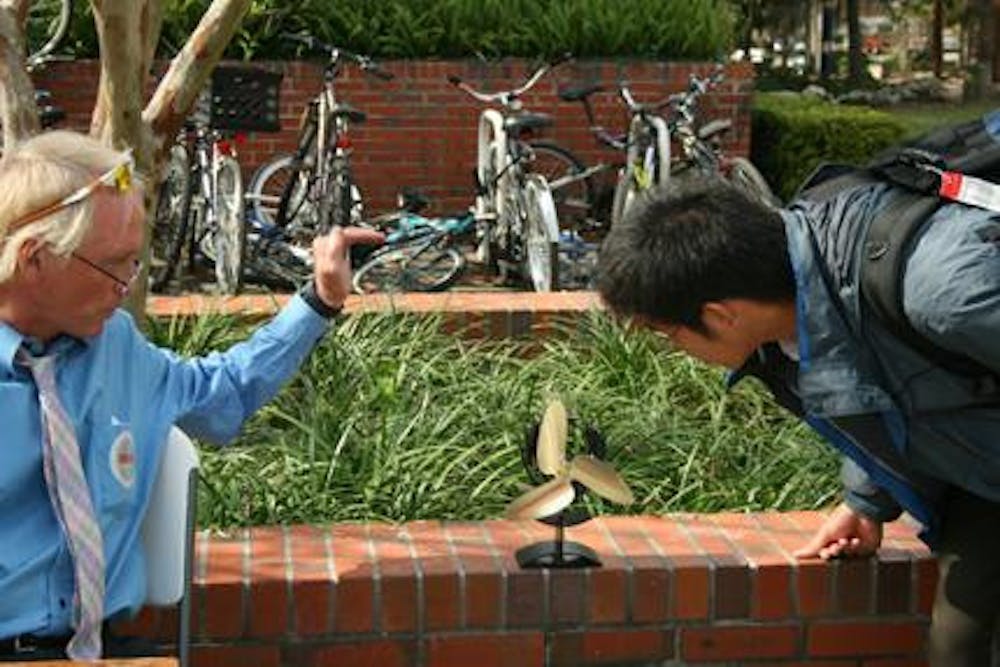Focus the Nation, a national organization that emphasizes global warming education, held a "Science of Climate Change" panel Thursday afternoon in UF's Ustler Hall Atrium to discuss possible solutions to the climate crisis.
Gainesville Mayor Pegeen Hanrahan, who has been involved in conservation efforts for more than a decade, gave a presentation on Gainesville's efforts to conserve energy and reduce carbon dioxide emissions into the atmosphere.
"What is really happening on the ground in America's cities and counties?" Hanrahan said. "The answer is: quite a bit. Certainly, Gainesville and Alachua County have been active."
She highlighted some of the city's conservation programs, which include planting trees, rebate and incentive programs for energy efficient buildings and shortening the time that traffic lights are lit.
She also explained a proposed biomass-fueled power plant, which would use plant waste for energy.
Another means of energy conservation Hanrahan encouraged was alternative transportation, such as biking, walking and the Regional Transit System buses.
She said about a million people used buses more than a decade ago, and that number has grown to more than 8 million people today.
Of all energy-conscious initiatives mentioned, she said the most important step is improving building codes to make structures more energy efficient.
Gainesville has offset more than 247,000 tons of carbon dioxide, but Hanrahan said the city still has a ways to go.
Two UF professors also shed light on global warming and possible solutions.
Stephen Mulkey, a UF associate botany professor, focused on the effects of global warming on Florida.
Florida's sea levels are expected to rise about 27 inches by 2100, which will put about 20,000 historic sites and 334 public schools at risk around the state, Mulkey said.
Scientists project increased rain and drought, more damage to coral reefs and frequent extreme weather, he said.
He said his "gut feeling" is that there will be fewer hurricanes over the next century, but the storms will be more intense.
"Even so-called abrupt climate change can take a decade or more to unfold," he said. "We need to really play a proactive, heads-up game here."
Every major scientific organization is aware of the growing effects of global warming, he said.
"I'm happy to throw a glove down on this and make them stand by their statement," Mulkey said.
He added that if scientists end up being wrong about global warming, it would represent the greatest scientific failure in history.
Paul Sotkiewicz, UF's director of energy studies, said the economy should place a price on greenhouse gas emissions in the next 25 to 50 years, such as through emission taxes.
If people have to pay for extra energy, Sotkiewicz said they wouldn't. It would be an effective way to cut back.
Greenhouse gases, which absorb heat in the lower atmosphere, are largely affected by fossil fuels as well as economic and industrial activities, Mulkey said.
If people don't reduce the planet's heat-up, major destruction will ensue, he said.
Mulkey said there's no quick fix for the damage already done by years of global warming.
"You have to be willing to invest in the long term for future generations," he said. "We're in it for the long haul."






